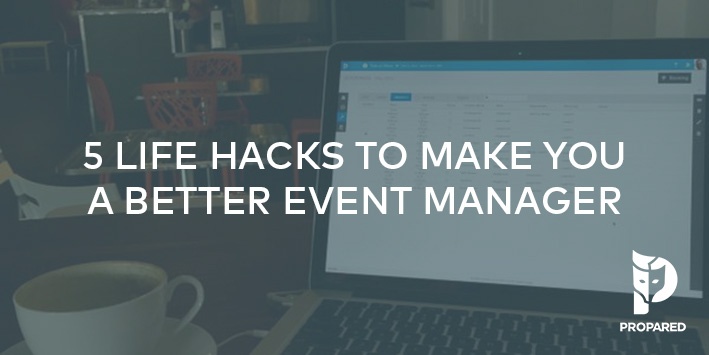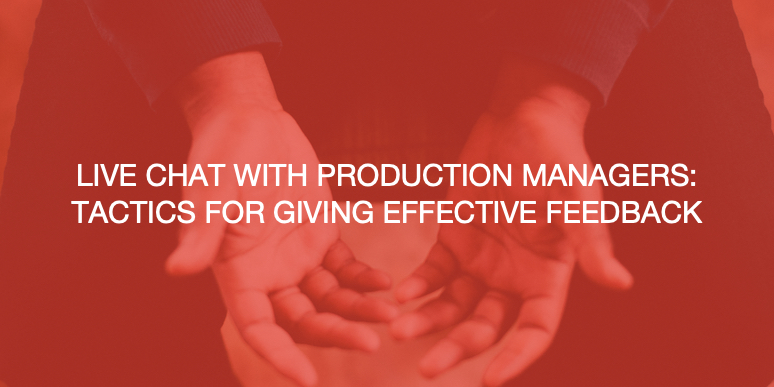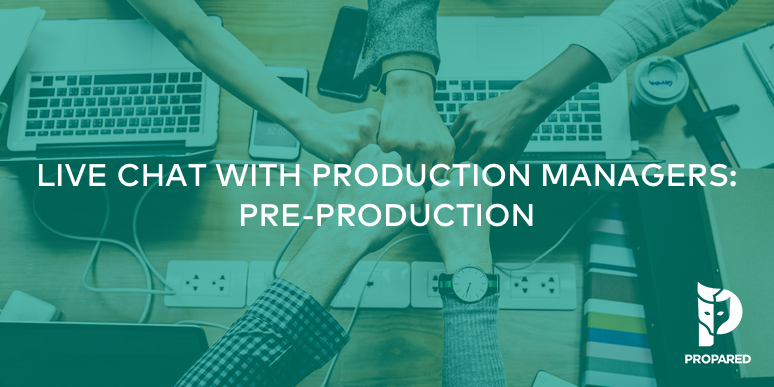
“How do you keep your work life from spilling over into your personal life?”
Every year, it seems like it’s getting harder and harder to answer this question. Living in an on-demand economy has significant implications on job expectations. Especially if you work in events. Even if we try to generally keep strict work hours, we still feel the pull to respond to requests. Even if they come in at 11 pm on a Tuesday (which happened to me recently and which, I confess, led me to spend the next 2.5 hours working on a deliverable).
Why? Why do we give up so much of ourselves for our work? I can think of a few reasons. The first is most obvious; it feels familiar. When we’re in the middle of an event, we’re pulling crazy hours. We get used to that kind of pace and energy. It might feel easier to just replicate that lifestyle for the rest of our days. The second is that event planners are primarily people pleasers. We want people to be happy, to have a good time, to be satisfied with every interaction. Another is financial; we don’t want to lose a potential job. I know for a fact I’ve missed a call and a job has gone to someone else because of it.
But the more we give up of our personal lives, the more likely we are to get stressed, make mistakes, produce lower quality work, and eventually burnout completely. So before you end up bitter and resentful (or if you are already and want to change it), here are some actionable steps you can take to manage your time and reclaim your life away from your events.
Tip #1 – On Time is Early
You can find a lot of career advice on both sides of this issue. Does it do more or less for your work and professional relationships? Having been at this for the past 15 years, I’ve come to believe strongly in the benefits of getting to work early.
Beginning my work day earlier has made me a much more efficient event manager. And not because I feel more awake. It’s actually much simpler. If I show up early, I usually have time to myself. Ah, heaven. Even 30 minutes of uninterrupted work before the emails start, the phone rings, and the meetings commence helps me make a serious dent in my to-do list. The satisfaction that comes from crossing things off goes a long way to improving your job satisfaction and engagement. Get a head start.
Pro tip: Before you start reshaping your entire morning, review your work environment. How does your company define “getting to work?” I used to think this meant being in the office. Now I see getting to work as a mindset. It’s not about where I am but what I’m doing. Once I turn my attention to the day’s tasks, I’m at work. No matter where I am. Since we started Propared, the idea of working remotely has opened up a whole realm of possibilities (like writing this blog from the passenger seat of a car somewhere in the middle of Texas). See what’s possible in your own company. Use whatever flexibility you can to break out of habits and get your day started sooner.
Tip #2 – Schedule Time Just for You
When I think about it, the “get to work early” mantra isn’t really about being early at all. It’s about creating space for yourself to focus. You don’t have to be a morning person to recognize the importance of “me time.”
A few years ago, I started adding meetings to my shared calendar. The meetings are a one-person show; me meeting my tasks and my tasks meeting me. It isn’t time I use to blow off work and watch SpaceX landing videos. If anything, it’s some of my most productive time of the day. Be judicious, be respectful. Don’t block yourself out for hours on end. But an hour here and there when you are unavailable to other people can be hugely beneficial. Tick off some busybody tasks, or do some research you’d been meaning to do and couldn’t find the time. Practice a presentation or prep for a client meeting. Or, simply gather your thoughts and use the time to reassess. As long as you are moving the ball forward, this is time well spent.
Pro tip: Employing this strategy takes discipline. It’s easy to get into the habit of bending your “working time” to fit in other meetings. When I first started booking myself out, I didn’t treat the time with much respect. I’d get a call asking for something and I’d chop 15 minutes off of my hour. What the hell, right? It’s my time I can do what I want with it! 15 minutes here and there and suddenly I was right back where I started. To be successful, you have to treat your “me and my tasks” time the same way you would treat a meeting. Make it as long or short as your needs require and stick to it. It can’t be shortened. It’s not free time. It has to happen.
Tip #3 – Every Day Must Have an End
We’re all guilty of this: ending your work day but then continuing to work. We accept that some days are longer than others. Especially when an event is around the corner, sometimes circumstances require us to push on, stay late. These need to be treated as exceptions, not rules.
I try to choose an end to each day and stick to it. It’s not the same every day. Even in a single week. But I set it, write it down, mark it in my calendar, and tell my colleagues. Creating work-life balance is not something that happens automatically. It has to be practiced. If you don’t set and respect your own limits, no one else is going to do it for you.
Pro tip: Even the most volatile of freelance schedules begins to develop a pattern. Keep meticulous records of you work schedules over the year. Look back over the past couple and see if you can spot similarities. Do you tend to work specific hours, on specific days, during specific times of year? If you spot patterns, you might be able to do a little forecasting. Anything that allows you to better pre-plan is good and helpful.
Tip #4 – Take Your Vacation Time
We’re also all guilty of chronically over-working. Even if we have vacation time saved up, we find excuses to put it off: it’s not the right time, a big project is coming up, we have a few more things to check off the list, and so on.
It’s even worse among freelancers, those for whom paid vacation time is often a luxury they don’t have. A lot of techs and production crew I know don’t get paid if they don’t work. No pay, no vacation. As a result, I know many that haven’t taken an actual vacation in years. I was one of them. But vacation time is important time we need to rest, recharge, and gain new perspective once we return to work. And I don’t mean the quick weekend jaunt to see mom, or the 36-hour whirlwind that is a friend’s wedding. I mean an actual, honest-to-goodness vacation that is for YOU.
Pro tip: Another benefit of doing a long-term audit of your work schedule is the ability to predict good times of year when you could more easily take a vacation. If you freelance, this means you need to create a clear plan for when you want to take time, where you are going, and the money you’ll need to save from expected gigs to offset the potential loss in income.
Tip #5 – Find a Hobby
It’s easy for us event warriors to become defined by our jobs. Resist this temptation. Find a hobby or activity that you truly love away from the hectic world of event planning. Hiking, running, knitting, playing rugby, reading, competitive fly boarding, whatever. Do something that uses a different part of your brain and a different part of your body from work. Even participating IN AN activity once a week will clear the cobwebs and take the monotony out of the day-in-day-out.
Last year, I took up rock climbing. I’ve always been an outdoors-type and since we started Propared, I found myself sitting behind a desk, staring at a computer more often. I needed to get outside but also do something active. Since I started, I’ve found my focus and productivity at work has increased exponentially. And I find myself increasing looking forward to both work and play.
Pro tip: I love me my event friends. I’ve spent a lot of long hours with other managers and planners putting up some amazing projects. And I love hanging out with them, too! But I’ve really found a freedom in taking up my hobby in a group of friends/strangers outside of my work collective. It’s another opportunity to really separate work and life and if you can, I encourage you to do it.
Event management is hard work. And you may find that a long career in the field never quite gives you equal time outside of the job. But by creating some basic boundaries, holding to them, and nurturing your passions away from the show floor, you’ll find it to be a much better ride.
What are some ways you’ve hacked to balance your work and personal life? Let us hear about them in the comments below.
This blog was originally published in August of 2014. It has been updated for relevance and freshness.



